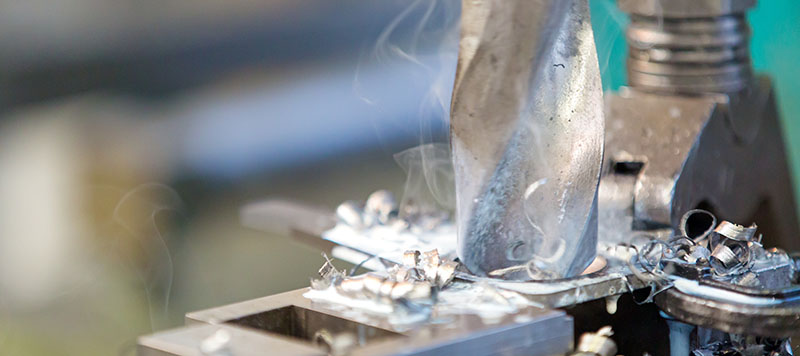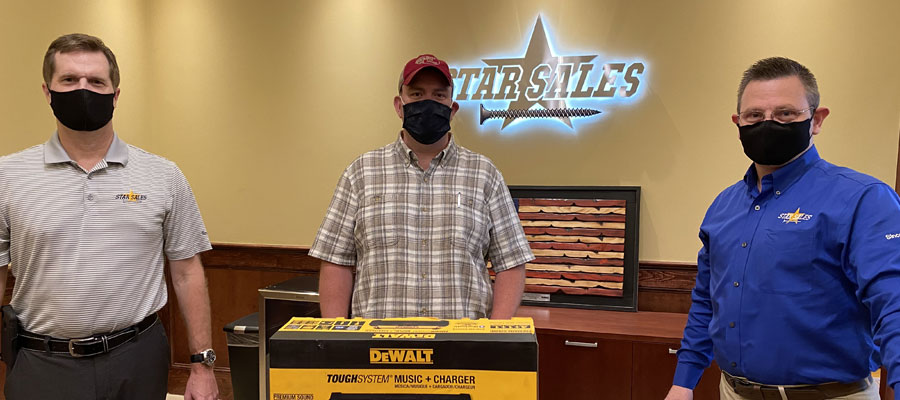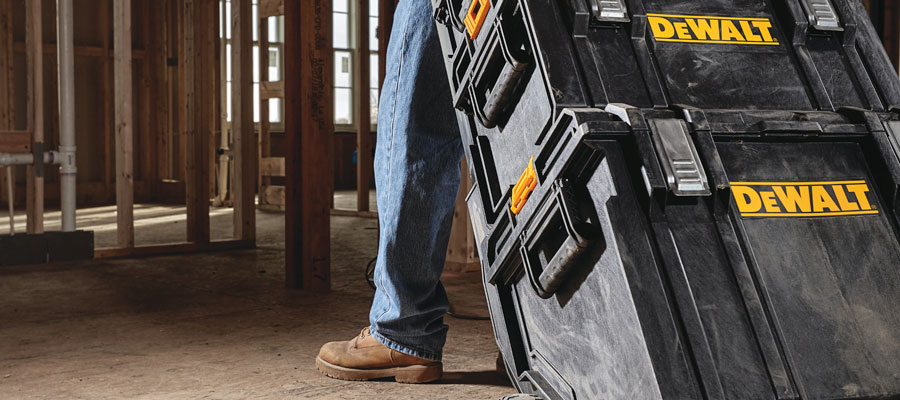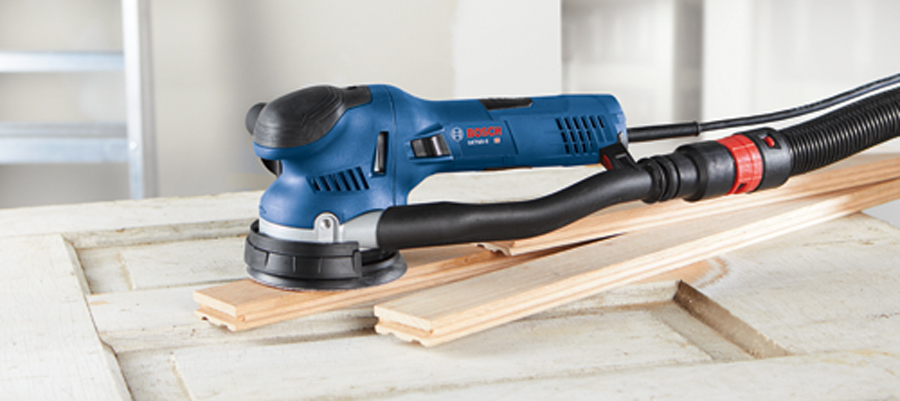When you're getting ready to drill, the type of drill bit is important, but just as important is the type of metal compound and bit coatings that are used in the drill bit. As an example, using a simple steel drill bit on very dense hardwoods may well be the end of that drill bit's lifespan. Knowing which options work best in which situations is the best way to ensure that when you buy your new drill bits, they will last a long time.
Common Metal Compounds
High-speed steel:
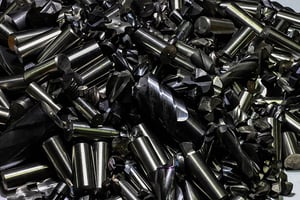
When you need an economical solution for wood, plastic or softer steel, high-speed steel bits can provide a good solution. However, these bits lose their edge relatively quickly and don't have a great deal of strength, making it difficult to use them for any length of time. For lightweight work, however, these bits give you decent performance for your investment.
Cobalt:
As a solid step up from high-speed steel bits, cobalt bits include 5-8% of cobalt into the steel, providing a stronger, more durable option for harder steels and even some grades of stainless steel. Cobalt's ability to dissipate heat makes it much more resistant to heat damage than other bits. Generally used for larger holes, spade bits are wide, flat bits that have a point in the middle of the tip, with smaller points at the edges of the bit. This allows them to cut out larger pieces of wood and remove them quickly.
Carbide:
Used on the most demanding of materials, carbide bits provide significant strength, but at the cost of flexibility. This somewhat brittle material doesn't dull quickly, but its lack of flexibility requires a very solid, stable base. This precludes it from effective use in hand drills, keeping its use best restricted to the shop.
Diamond:
As one of nature's hardest materials, diamond bits provide exceptional performance on very hard items, such as glass, tile or similar materials. However, even though the industrial diamonds used are poor quality, they are still significantly more expensive than other bits. For this reason, you'll want to restrict their use to specific tasks.
Common Metal Coatings
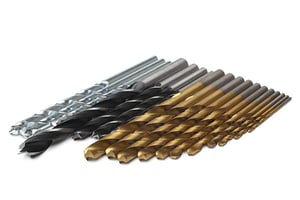
Black oxide:
This coating helps reduce friction in the cut, reducing heat buildup in the drill bit, as well as improving the flow of material out of the drilling point. It also delivers protection against corrosion, rust and water damage. However, it does not work well for drilling ferrous materials, such as iron or steel.
TiN (Titanium Nitride):
With a gold cast to the bit's surface, TiN coatings can be run at higher speeds than uncoated bits, providing better tool lifespan and faster project completion. It also provides additional resistance to heat damage and reduces friction in the drill head, increasing bit life by up to five times that of uncoated steel.
TiCN (Titanium Carbonitride):
With a blue-gray tone to it's surface, TiCN coated drill bits is harder and more resistant to wear than most other coatings. This makes it an excellent choice for drilling harder materials such as iron, steel or aluminum. It has better adhesive qualities and fewer issues with chipping or other wear.
By knowing the drill bit metals and coatings, as well as in which situations they work best, you can use the right bits for each project without risking losing your investment. At Star Sales, our job is helping you find the right tools and materials for your project. If you need help finding the perfect drill bits for your project, please feel free to contact us today for more information or with any questions.

